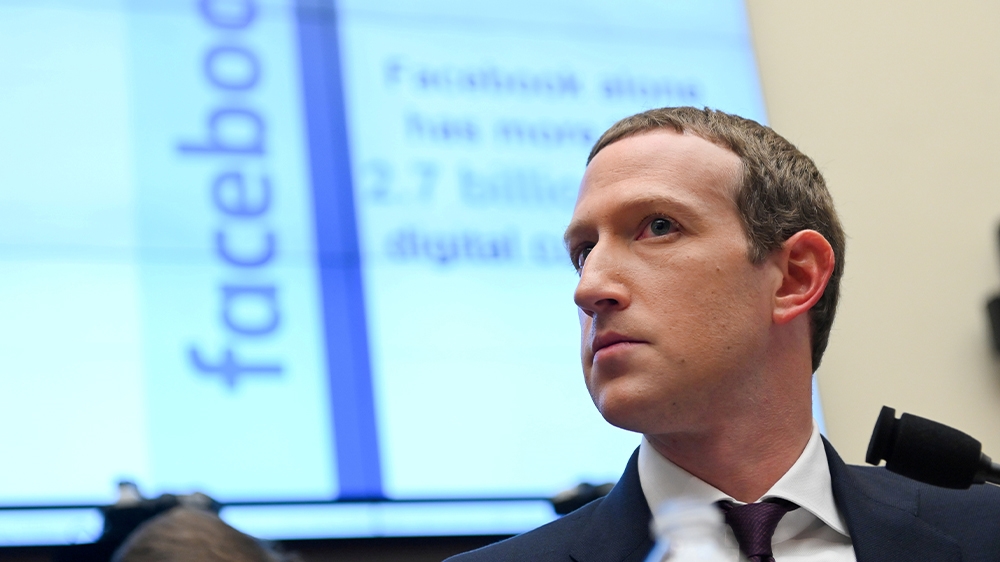Twitter bans political advertisements from its platform
Platform’s CEO says ‘reach’ of social media raises ‘significant risks’ to politics, raising pressure on Facebook to act.

Twitter has announced a ban on all political advertising from its service, saying on Wednesday that social media companies give advertisers an unfair advantage in proliferating highly targeted, misleading messages.
Twitter CEO Jack Dorsey tweeted the change, declaring that the company had realised “paying for reach” on Twitter, Facebook and other platforms had “significant ramifications” for civic discourse.
Keep reading
list of 4 itemsCould shipping containers be the answer to Ghana’s housing crisis?
Are Chinese electric vehicles taking over the world?
First pig kidney in a human: Is this the future of transplants?
The majority of money spent on political advertising in the United States goes to television ads.
Twitter’s policy will start on November 22 with the full policy published by November 15.
Some exceptions will be allowed, including advertisements in support of voter registration.
“We believe political message reach should be earned, not bought,” said Dorsey, on his personal Twitter account.
“While internet advertising is incredibly powerful and very effective for commercial advertisers, that power brings significant risks to politics, where it can be used to influence votes to affect the lives of millions,” he added.
“Internet political ads present entirely new challenges to civic discourse: machine learning-based optimisation of messaging and micro-targeting, unchecked misleading information, and deep fakes,” said Dorsey. “All at increasing velocity, sophistication, and overwhelming scale.”
Eric Ham, a political analyst and author of The GOP Civil War, told Al Jazeera the move would have ramifications across the world.
“This is huge,” Ham said. “Not only for the business and social media communities but more importantly for the political landscape in the US and across the globe. We are talking about a major vehicle for getting out one’s message now being closed off completely.”
The decision drew a swift response from the Trump campaign, which said in a statement posted to Twitter that the ban was a “very dumb decision.”
Twitter bans political ads in yet another attempt by the left to silence Trump and conservatives. Wouldn’t be surprised if @twitter lifted the ban after 2020.
Statement: pic.twitter.com/4ZdHGJw3js
— Brad Parscale (@parscale) October 30, 2019
Pressure on Facebook
Ham said Twitter’s move was likely to increase pressure on Facebook.
It has already been under fire in the US and UK over the use of millions of people’s user data in political campaigns to create highly targeted advertising.
On Wednesday, the social media firm agreed to pay a fine of 500,000 British pounds ($643,000) to the UK regulator for its role in the Cambridge Analytica scandal, which was linked to the 2016 Brexit referendum. The now-defunct company had also worked on political campaigns in other countries around the world.

In October, Facebook said that it would not fact-check ads by politicians or their campaigns, which could allow them to lie freely.
CEO Mark Zuckerberg told Congress last week that politicians have the right to free speech on Facebook, angering those who support stronger controls on what politicians can say online.
The issue flared up again in September when Twitter, along with Facebook and Google, refused to remove a misleading video advertisement from US President Donald Trump‘s campaign that targeted former Vice President Joe Biden, a leading Democratic presidential candidate.
In response, Democratic Senator Elizabeth Warren, another presidential hopeful, ran an advertisement on Facebook taking aim at its CEO Mark Zuckerberg. The ad falsely claimed that Zuckerberg endorsed Trump for re-election, acknowledging the deliberate falsehood as necessary to make a point.
Critics have called on Facebook to ban all political ads.
Dorsey also urged legislators and regulators to work harder to develop new laws governing social media.
“We need more forward-looking political ad regulation (very difficult to do). Ad transparency requirements are progress, but not enough,” he tweeted. “The internet provides entirely new capabilities, and regulators need to think past the present day to ensure a level-playing field.”
Facebook on Wednesday reported a profit of more than $6b in the three months ending in September, as revenue climbed by 28 percent.